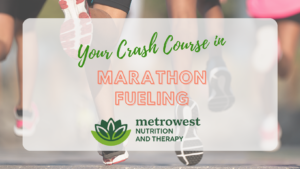The Vitamin D Debacle
Do we need more vitamin D? Some clinicians say yes and the more the better. However, The Institute of Medicine (IOM) issued a report on November 30th cautioning the public about high doses of vitamin D supplementation. Although the review panel suggests increasing the Dietary Reference Intake (DRI) from 200 to 600-800 IU for adults, they also recommend an upper intake level of 4,000 IU per day. This is well below the 20,000-40,000 IU doses that have been suggested for seasonal affective disorder and depression.
We know that vitamin D helps strengthen bones. Preliminary research suggests it may also help prevent cancer, heart disease and even the flu. North Americans are at risk for vitamin D deficiency due to lack of sun exposure for many months out of the year. If you live in New England and hibernate through the winter months, you may want to get your vitamin D levels checked. There is is evidence to the support the benefit of additinal vitamin D, the question remains ‘how much?’.
D3 known as cholecalciferol (D3) is formed through the skin during sun exposure. It is also found naturally in salmon and other fatty fish, beef liver, egg yolk, fortified milk and cheese. Dried shittake mushrooms have recently been found to be high in vitamin D3. Most supplements provide vitamin D2, a synthetic form that is also used to fortify milk (Note: organic milk contains D3). D2 has a lower potency and shorter duration of action in the body (50% shorter in fact). You can find supplements with D3 but they may not be vegetarian.
There are conflicting views around how much vitamin D we need. Large doses may be therapeutic for some and while they may pose risk is it any greater than medication? This is something to consider. Nonetheless, get your vitamin D levels checked, get out in the sun when possible and eat foods high in vitamin D. Taking a vitamin D supplement could be an inexpensive, low risk way to boost your immune system. You decide.
Check out the Institute of Medicine recommendations IOM’s report on DRI for Calcium and Vitamin D
Vitamin D and flu prevention Randomized trial of vitamin D supplementation to prevent seasonal influenza A in schoolchildren.



